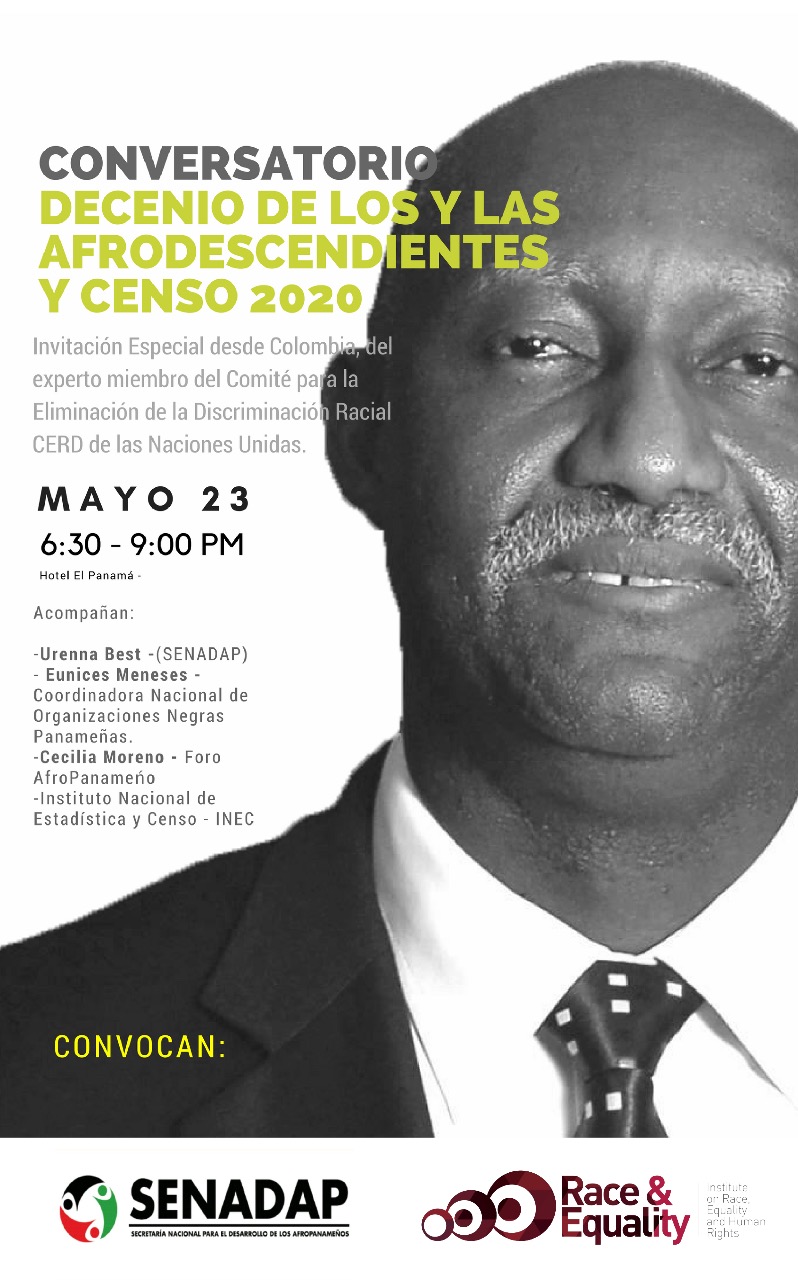Decade for People of African Descent and the 2020 Census
Washington, D.C. – May 28, 2018. On May 23, 2018, the Institute on Race, Equality and Human Rights (Race and Equality) and the National Secretariat for Afro-Panamanian Development (SENADAP) held […]

Washington, D.C. – May 28, 2018. On May 23, 2018, the Institute on Race, Equality and Human Rights (Race and Equality) and the National Secretariat for Afro-Panamanian Development (SENADAP) held a public conversation at the El Panama Hotel in Panama City, entitled “The Decade for People of African Descent, and the 2020 Census,” featuring panelists including Pastor Murillo, Independent Expert for the Committee on the Elimination of Racial Discrimination (CERD); Eunices Meneses of the National Coordination of Black Panamanian Organizations; and Cecilia Moreno of the Afro-Panamanian Forum. The conversation also brought together in the audience various Afro-Panamanian activists and representatives of the Afro-descendant Technical Committee who were involved in the previous 2010 census process.
Elvia Duque of Race and Equality opened the dialogue by stressing the importance of the census, and the work that CERD, and the International Decade for People of African Descent have done to promote them. Thus, it was concluded that the upcoming 2020 census in Panama should be of particular interest not just to the nation, but to the region and the world. In this regard, SENADAP Director Urenna Best explained the advocacy work that Pastor Murillo has done at the UN as part of the CERD committee, in favor of the Decade of People of African Descent.
Mr. Murillo began his intervention by giving background information on the creation of the International Decade for People of African Descent, and referenced preceding events, such as the World Conference Against Racism held in Durban, South Africa in September 2001. He then presented examples of other census processes in Colombia and Venezuela as similar experiences from which to analyze and learn.
Eunices Meneses of the National Coordination of Black Panamanian Organizations explained that, despite not fulfilling all the desired expectations, the 2010 census should be considered as an important step in raising the visibility of Afro-Panamanian populations. In addition, she asserted that the biggest challenge facing the census process is the ability of individuals to self-identify. Regarding this, she urged greater cooperation between women and youth, and to learn from the experience of the 2010 census.
Furthermore, Cecilia Moreno of the Afro-Panamanian Forum stressed the importance of identifying the number of Afro-descendants in Latin America, in order to develop public policies that can benefit their communities. These initiatives have been touted since the year 2000 but have yet to be fulfilled. Similarly, Ms. Moreno assured participants that both the Afro-Panamanian movement and INEC are aware of the methodological factors that influenced the results of the 2010 census, in order to make the 2020 census more successful.
Mr. Murillo concluded the conversation by proposing to provide the audience with information on the census process used in Colombia, by way of a virtual training which can be replicated for Panama, particularly responding to concerns raised during the session about the roles that census workers are to play. Overall, the audience reacted positively to this proposal.

